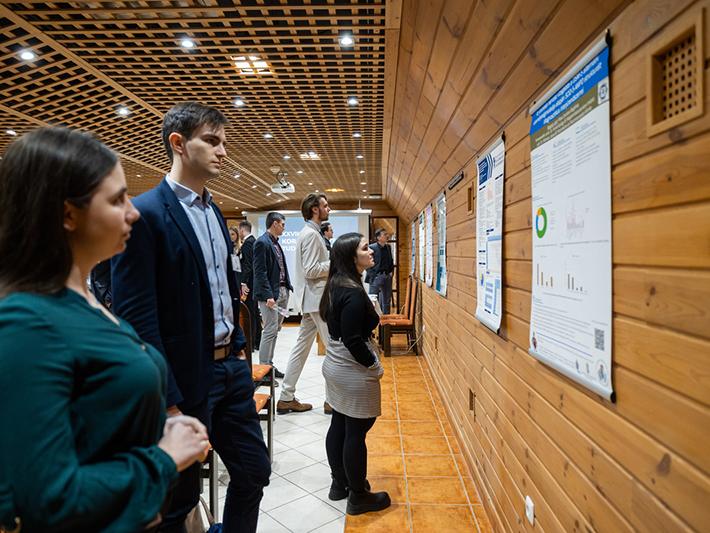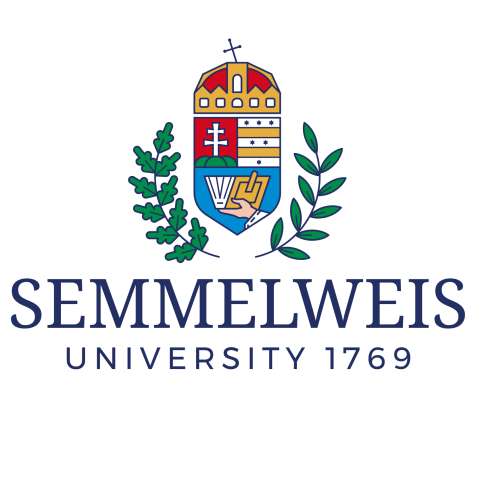
How student learning communities support professional development
A learning community, external to university teaching, can support democratic mentoring and help to train a highly professional, broadly educated medical intelligentsia who are also well versed in social issues. This system of colleges for advanced studies dates back decades in Hungary. On the initiative of students who set themselves qualitative goals in addition to the general aims of the institution, the first one was established at Semmelweis University in 1985. The most talented students with the best results sought an education that addressed societal and healthcare issues in addition to professional medical training to create a network that was able and willing to act and take responsibility for their actions.
What are colleges for advanced studies?
A college for advanced studies is a learning community whose members are students who live together and inspire each other. This process is educational/self-educational and includes elements such as mentoring and extracurricular activities that cannot be performed within the university. The college is a public experimental space where individuals can test and discover themselves, assess their abilities and potential, clarify their values and define the role they wish to play in society. It is a student organisation for talent management run democratically, based on the self-activity and self-governance of the students. It develops its own professional programmes and provides a high-quality education. In this way, it helps nurture the talents of outstanding university students, promotes their role in public life, creates the material and personal conditions for preparing them for intellectual tasks, and educates professionally demanding intellectuals who are sensitive to social problems.
The rise of colleges for advanced studies: precursors of regime change
As small islands of freedom of thought and science, the colleges for advanced studies were briefly involved in the preparations for the change of regime in Hungary in the last years of the communist dictatorship. The idea of thinking independently of the political ideology influenced the choice of subjects, lecturers and teachers, the mechanisms and atmosphere of internal functioning, and a significant part of external relations, and it was a great act of courage. It was important to have a forum for ideas that could not be expressed elsewhere, but perhaps most importantly, the students were able to shape the vision of the future they wanted to create.
- Resource collection: how universities can protect academic freedom
- Campus podcast: Vanderbilt president Daniel Diermeier on the path of principled neutrality
- Four ways to weave job skills teaching into the university experience
Today, Semmelweis University has three professional colleges: the Korányi Frigyes College, the Semmelweis Ignác College and the Selye János Doctoral College.
Over the past 39 years, more than 300 students have graduated and are working in some 40 countries around the world in support or management positions or as freelancers. They include general practitioners, university professors, clinic directors, institute managers, deans, vice-chancellors, state secretaries for health, healthcare system managers, private clinic directors, pharmaceutical company directors and entrepreneurs from Switzerland to Australia and the US.
Democratic operation and high-quality training
The democratic functioning of the colleges is based on committees elected by the students. The “habilitation committee” handles the admission procedure for new applicants and evaluates the professional and community work of the students at the end of each semester. Those who do not meet the criteria are no longer allowed to participate in the life of the college. During the habilitation process, credits can be awarded for activities and achievements including the academic grade point average, participation in or a position in the university’s Scientific Students’ Associations Conference (TDK) or the National Scientific Students’ Associations Conference (OTDK), presentation at the Korányi Frigyes Scientific Forum, publication in a professional journal, and membership of a professional organisation. The professional committee organises the college’s professional programmes. Each student is required to attend two professional courses each semester, and there are workshops and discussions.
The students’ committee is the college’s governing body, which manages the college between two general assemblies and is mainly concerned with student accommodation, social programmes and day-to-day activities. The audit committee monitors the legitimacy of the functioning of these committees and deals with legal matters concerning the students.
In addition to the committees, a mentoring system contributes to the high quality of training. Our first-, second- and third-year students are supported by senior mentors, who involve their younger peers as much as possible in professional activities. Postgraduate students assist the progress of undergraduate students, and visiting researchers mentor postgraduate students.
A bottom-up community and a learning organisation
A college for advanced studies builds its development on experience, which means that it records and incorporates activities that prove effective into its future programme, and weeds out, improves and develops ineffective practices. An important aim of learning organisations is to enable participants to see themselves and the world from a new point of view. There are three essential components to the development of this new perspective:
1. Education for a systemic mindset (to enable young people to see the world in a systemic way). This requires, in addition to in-depth studies, an openness to dialogue.
2. Practices that support coordinated action based on conviction, as ideas about social issues and their verbalisation are valuable especially when they encourage action to advance an important cause.
3. A culture based on higher values of love, compassion and acceptance in everyday life.
Individual learning is essential not only for the individual but also for the community. This learning at the community level is effective if it can weed out and develop the thought patterns of the individual, and if it can bring together and possibly combine the valuable ideas of individuals. Ideally, it can turn single dreams into a community dream.
For most students, being part of the college, part of the big team, is a unique and special stage in their professional journey that will influence not only their future career but also their outlook on life in general.
Ferenc Godó is the director of three colleges for advanced studies – Korányi Frigyes College, Semmelweis Ignác College and Selye János Doctoral College at Semmelweis University – and one of the founders of the Hungarian system of colleges for advanced studies.
If you would like advice and insight from academics and university staff delivered direct to your inbox each week, sign up for the Campus newsletter.




